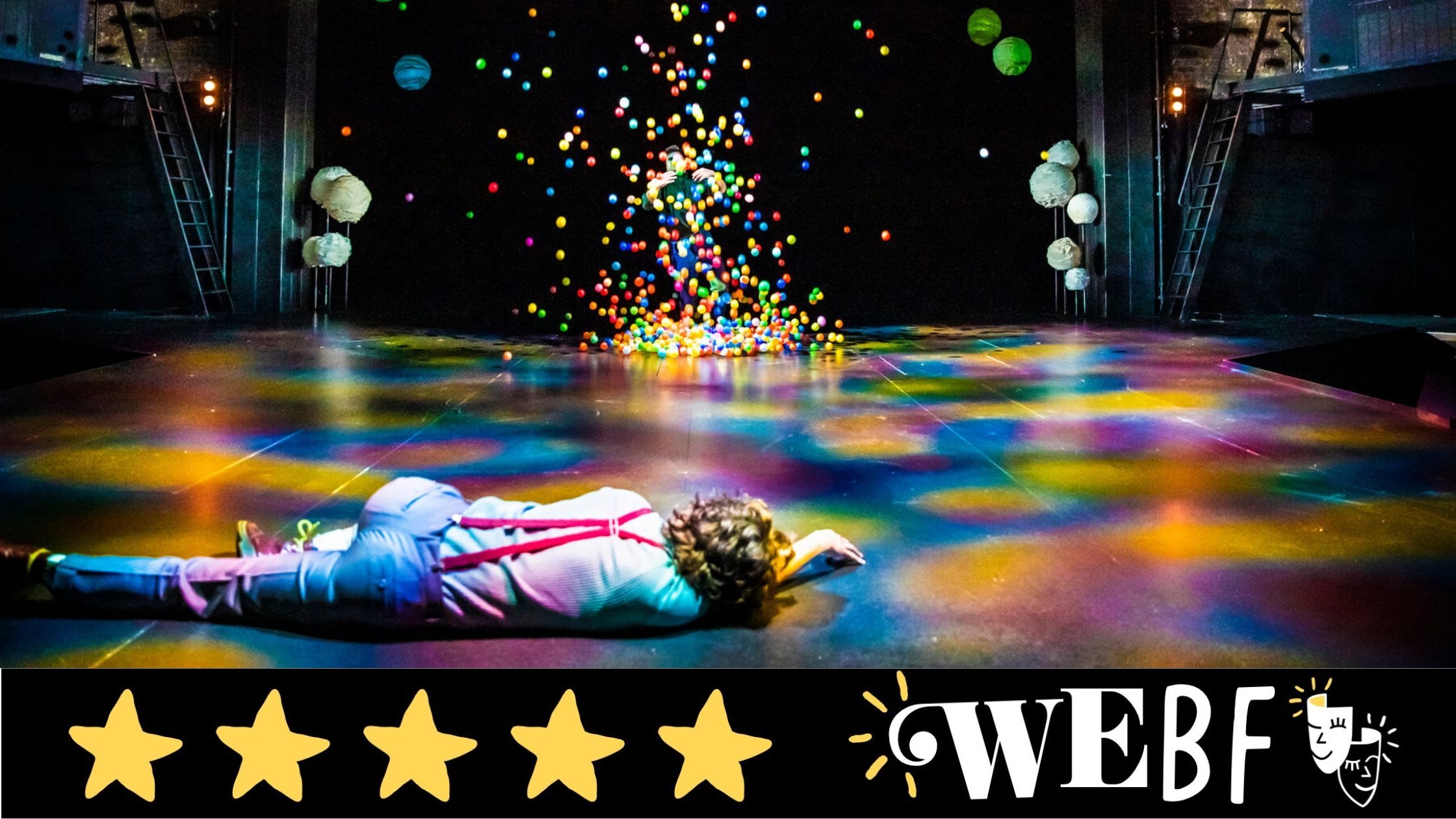Review: A MIDSUMMER NIGHT’S DREAM, RSC
Photo credit: Pamela Raith
Shakespeare’s most accessible and well-known comedy, A Midsummer Night Dream, with its well-loved characters and delightful interactions, has had many famous names presenting their Bottom, from Frankie Howerd in 1957 in the Old Vic production to the 1959 RSC production with Charles Laughton, to David Walliams in the Michael Grandage 2013 production and Al Murray opposite Dame Judi Dench in 2016 BBC Shakespeare Live show.
The Royal Shakespeare Company’s latest production casts TV hit series Ghosts star Mathew Bayton in the central comedic role. Director Eleanor Rhode with designers Lucy Osborne, John Bulleid and Matt Daw give the play a very fresh updated feel with a strong Seventies’ vibe and a real sense of magic in the air; a perfect setting for Bayton to deliver a wonderful comic performance as Bottom. The Seventies feel is emphasised by the costume choices with hints of Duran Duran, Adam Ant, Bay City Rollers, and Paul Weller.
The Stratford-upon-Avon thrust stage with audiences on three sides presents a real challenge in any staging but especially when you want to bring the fairy’s magic and illusion to the centre of the storytelling. Yet from the start, the bare black stage is given an ethereal feel with the pre-show “tubular bells” style orchestration and canopy of white paper globes drawing us into a mystical world. The lighting on the globes is exquisite, illuminating as fairies speak. The illusions are largely set upstage within the proscenium arch which beautifully frames them as characters appear, rise, and disappear in the darkness. Critical props become wonderous and mystical such as the levitating bower on which Bottom and Titania sleep and the floating love juice flower which Puck plucks from the air to give to Oberon before it floats in front of him. Bottom’s ass’ ears are delightfully animated to great comic effect. Later, the four lovers magically disappear through the stage. The Fairies, in attendance of Titania, are presented by tiny dots of light that dance in the hands, on the clothes and in the air around the characters. When in the woods, long ladders magically rise from the stage as trees like lamp standards from Mary Poppins bag!
There is a powerful contrast between the mystical woodland scenes and the Athenian Court scenes that top and tail the play which is cleverly drawn out . Bally Gill is a nervous awkward Theseus, comically presiding over his court but an arrogant strong strutting Oberon, the Fairy King in the woods directing the chaos. Sirine Saba is a demure subservient Hippolyta in court to begin with but a sensuous seductive Titania in the woods. The Mechanicals play their parts straight with earnest intent in the woodland rehearsals but explode into camp hammy-ness in the court performance breathing a fresh energy into the familiar take of Pyramus and Thisbe and their comical romance through the chink in the wall.
The four lovers mismatched by Oberon are full of energy and confusion as they chase each other through the woods. Ryan Hutton is full of swagger and conceit as Lysander, seeking to elope with Dawn Sievewright’s Hermia, a teenager with attitude. Boadicea Ricketts is a lovelorn rejected Helena before wonderfully bursting with anger and confusion when Lysander and Demetrius (Nicholas Armfield) both profess love. Their interactions are excellent if occasionally we do lose a few words in their breathless accented delivery.
Yet it is Baynton as Bottom who steals every scene with a very well judged and controlled comic performance, and a delightful theatrical physicality which is enchanting and amusing whether dressed in his smart tailored suit, his underpants or white ballet tights. His final moments as the suicidal Pyramus are hilariously played in the best traditions of amateur theatre.
Due to the indisposition of Rosie Sheehy, Premi Tamang seamlessly stepped up from Starveling to the important role of Puck, the mischievous sprite and pranced and danced around the humans while delivering her lines with a wonderful clarity in a charming performance. Her famous final speech beautifully sums up the nature of theatre: “If we shadows have offended, think of this and all is mended…….give me your hands, if we be friends, and Robin shall restore amends”. And as you leave this production, you feel uplifted reflecting on the wonder of a 420-year-old play that still engages and entertains, and grateful that the RSC have delivered what they are set up to do, find fresh ways of keeping this wonderful canon of work alive for new audiences and satisfying for old friends.
***** Five stars
Reviewed by: Nick Wayne
A Midsummer Night’s Dream plays at the Royal Shakespeare Theatre until 30 March, with further information here.

